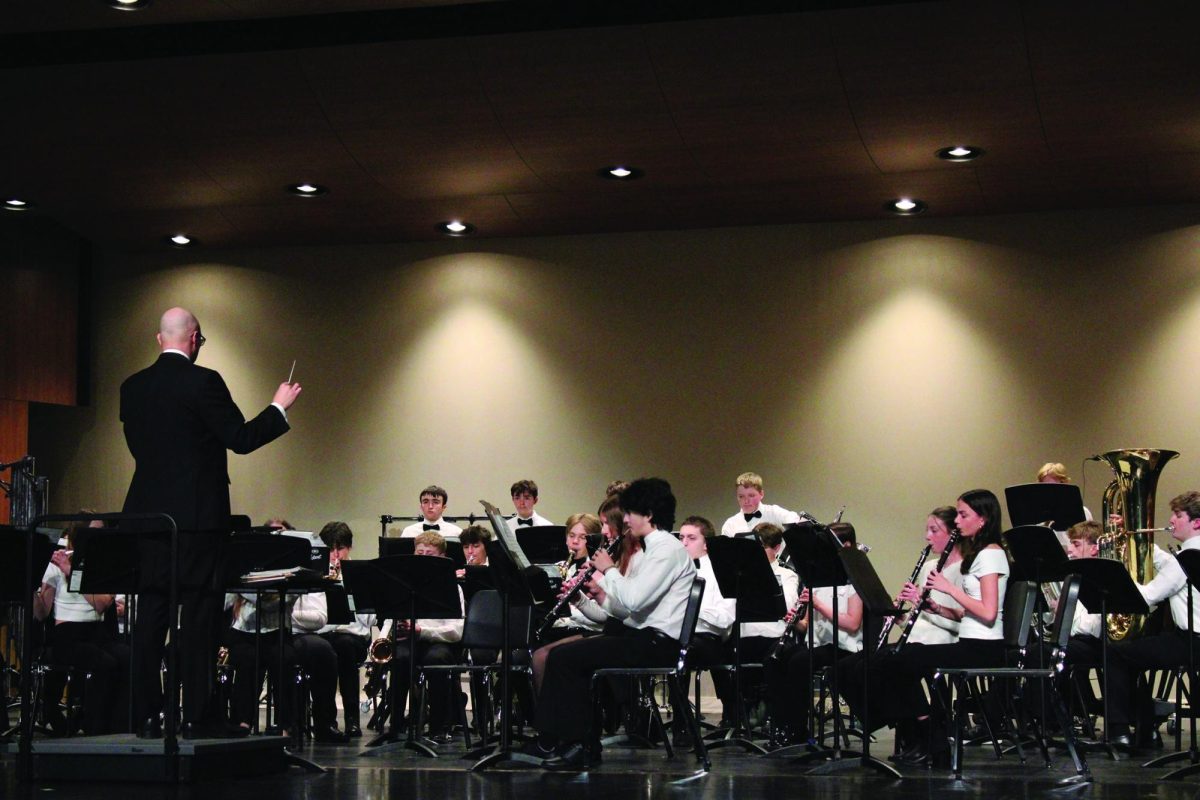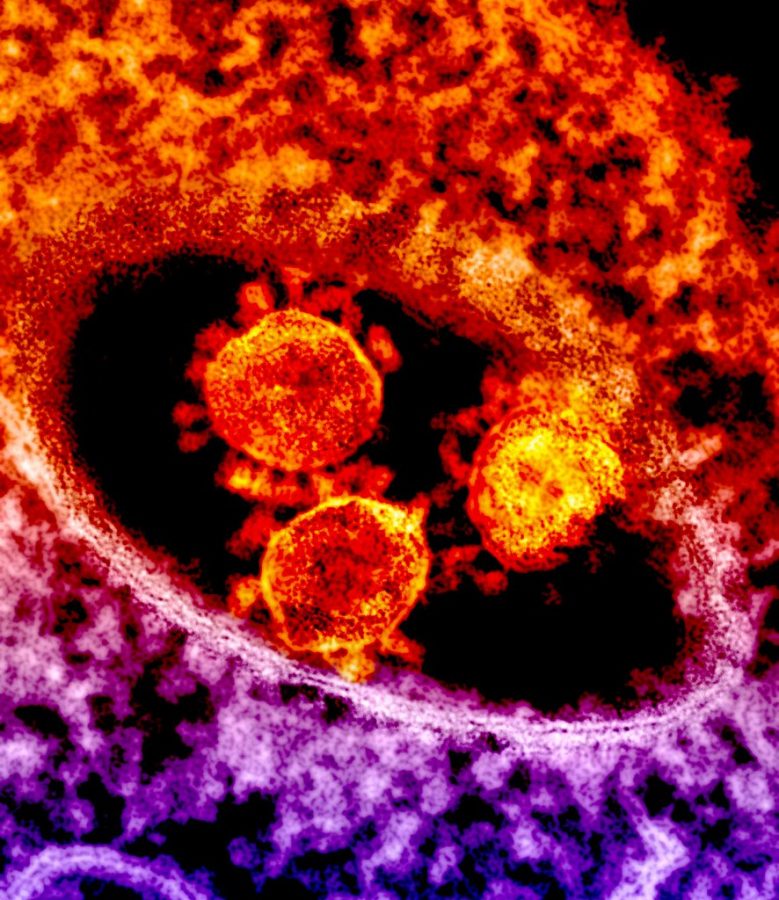Coronavirus affects LT, United States
Coronavirus particles
March 19, 2020
LT is currently closed from March 16 until April 7 due to the growing spread of the coronavirus. Instead of sitting in class with their teachers, students now sit on their laptops and partake in e-learning at home. It is a complete shift of the average school day and students have to adjust to a new routine.
“This is an unprecedented situation and, although e-learning does not replicate the amazing work our teachers do on a daily basis, it is helping to move the curriculum forward in classes,” Principal Dr. Brian Waterman said. “[However,] it definitely hinders the ability to teach and learn at a high school level.”
The outbreak of respiratory disease caused by a new coronavirus was first detected in Wuhan, China, and has reached, as of now, 157 countries and every state in the U.S. as of March, 19, according to the Johns Hopkins Coronavirus Resource Center. Coronaviruses such as MERS-CoV and SARS-CoV and now SARS-CoV-2 (abbreviated COVID-19) are a part of a large family of viruses that are common in humans and different species of animals. This novel coronavirus has affected the whole world and caused entire countries to almost shut down completely.
“You know, a week ago, we were in a different world…[Along with] other places, we were just monitoring it,” Waterman said. “We’re going to continue to communicate the information we have, and [if] we have a positive case in our community, then we’re going to take guidance from the CDC and Illinois Department of Public Health.”
On Jan. 30, 2020, the International Health Regulations Emergency Committee of the World Health Organization declared the outbreak a “public health emergency of international concern” and, as of March 11, a pandemic.
“The situation escalated in a matter of days,” Lyons Township Education Association executive board member and Spanish teacher Lisa Plichta said. “After school on Tuesday, March 9, at our LTEA exec board meeting, we discussed the probability of school closing at some point, but I think most of us assumed it might happen after Spring break. Some of us left the meeting talking about our vacation plans for international travel. As you know, by Friday afternoon we received the news of needing to close.”
The first infections were linked to a live animal market, but now the virus is spreading through person-to-person contact, leading to community spread. It can also be transmitted through a cough, sneeze, handshake or by touching something an infected person has touched and then touching your mouth, nose or eyes, according to the Center for Disease Control (CDC). The symptoms include a fever, dry cough and shortness of breath, and they may appear two to 14 days after exposure. Those with a weakened immune system, the elderly and those with pre-existing health conditions, have a greater chance of developing a severe case of COVID-19.
“We’re going to continue to communicate the information we have,” Waterman said. “We are in unprecedented territory here with this on a global basis. So there’s no way we can predict where we are going to be in April. From graduation, to all the events that are coming up over the next few weeks, events for seniors especially. There’s no way we can know what’s happening with that. I think we will have a lot of clarity within the next two, three weeks. But we’re going to continue to communicate the information we have at the moment.”
Some of the most effective methods of preventing COVID-19 are washing your hands and avoiding touching your face. The reasoning behind this is to prevent germs and bacteria from entering the body’s mucous membranes such as the nose, mouth, and eyelids. Social distancing is also essential to slowing down the influx of new coronavirus cases and keeping the hospitals and medical facilities from being overwhelmed. Social distancing is a practice of social isolation which includes the cancellation of mass gatherings, according to Johns Hopkins Medicine.
Illinois has implemented different orders such as closing all restaurants and bars to in-person patrons, canceling large venues and events, closing schools and implementing e-learning to reduce the number of novel coronavirus cases and protect hospital resources. Illinois also hosts a daily update at the State Emergency Operations Center to discuss new measures and statistics.
At the national level, President Donald Trump has also restricted entry into the U.S. from many European countries, including the UK and Ireland. However, U.S. citizens will be allowed to return.
So far, the U.S. has detected over 5,100 cases and reported 92 deaths in all states and surrounding U.S. territories. The number of cases is estimated to be far lower than the actual number of cases due to delayed and limited testing. The limited testing is due to the shortage of crucial chemicals needed to run the tests, according to NBC. However, commercial labs have stated that they will soon be able to test tens of thousands of people each day, and drive-through test sites are beginning to be implemented in some states, Illinois included.





















![Movie poster for '[Rec]" (2007).](https://www.lionnewspaper.com/wp-content/uploads/2023/04/rec-640x900.jpg)




